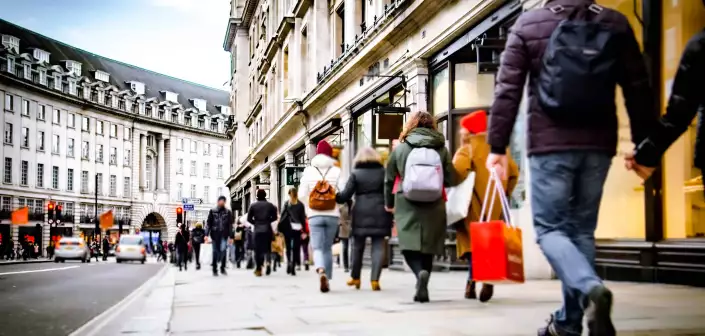BCG’s Survey of 7,000 European Consumers Examines Shopping Habits and Preferences Amid Ongoing Cost of Living Crisis
BOSTON—Consumers across Europe are feeling the squeeze, with 73% reporting higher prices for goods and services in the first half of the year. At the same time, wages and savings haven't kept pace: 25% of surveyed respondents said their income dropped in the first half of 2024, and 28% said they didn’t save as much.
To compensate, European consumers are curbing their spending on nonessentials, and trading down to lower-priced brands, with apparel (-20%), snacks (-15%), and alcohol (-15%) seeing the largest net decreases across product categories. Surprisingly, the net decline in spending on luxury fashion was not as severe as it was for apparel. The likely explanation lies in the presence of two distinct consumer segments: a more price-sensitive group, which reduced its spending by 35% in the first half of 2024, and a second, more resilient group, which increased its spending by 22%, largely driven by purchases of higher-quality goods or more expensive brands.
These are among the findings of European Consumers Are Optimistic But Still Not Spending , part of the 2024 European Consumer Sentiment Report series from Boston Consulting Group (BCG) , which examines consumers’ shopping habits and preferences. For the series, BCG surveyed over 7,000 shoppers across Denmark, France, Germany, Sweden, and the UK.
“As consumers tighten their belts, they’re being more selective about what they buy and where,” said Andreas Malby, leader of BCG’s Consumer practice in Europe, the Middle East, Africa, and South America, and a coauthor of the report. “Brands that embrace localized product offerings, dynamic pricing, and hyper-personalization will be best prepared to win the battle for consumer dollars.”
Europeans More Worried about National Issues than Their Personal Situations
Despite higher prices, the European consumers BCG surveyed said in the first half of 2024 they felt better about their personal situation (for example, physical and mental health, financial stability, security) than about national issues (the economic and political situation, social and cultural atmosphere, the environment.)
On average, 57% of European consumers said they were most concerned about their country’s political situation and 49% were most concerned about their country's economic situation. By contrast, only 25% felt pessimistic about their personal financial security.
Residents of Nordic countries were slightly more optimistic about what’s happening in the region than the average European consumer. But people in France felt the worst about national issues among all survey respondents and were most concerned about their country’s political situation.
Sustainability Matters, but Few Would Pay a Premium
Close to four in ten European consumers said they occasionally or regularly think about sustainability and climate change when they’re shopping. However, just 19% said they would pay a premium for green products. Sustainability remains secondary to other factors such as good value for the money, practicality, convenience, and offers or discounts.
Brick and Mortar Still Reigns Supreme
Most European shoppers said that, across all categories, they go online at some point during the process of buying something, whether it’s to browse, look for inspiration, or complete a purchase. However, if forced to choose, consumers still prefer to buy from a physical store over an online-only vendor.
People in France and Germany are the least likely to buy things online, especially when it comes to alcoholic and non-alcoholic beverages, groceries, over-the-counter medication, and home care items.
“Discounting won’t be enough on its own to woo the loyalty of price-sensitive consumers,” said Malby. “Retailers need a deep understanding of how customers prefer to shop and what drives them, if they’re going succeed in today’s market.”
Download the publication here .
Learn more on how the trends are playing out at the country level: Denmark , France , Germany , Sweden , and the UK .
Media Contact:
Eric Gregoire
+1 617 850 3783
gregoire.eric@bcg.com
